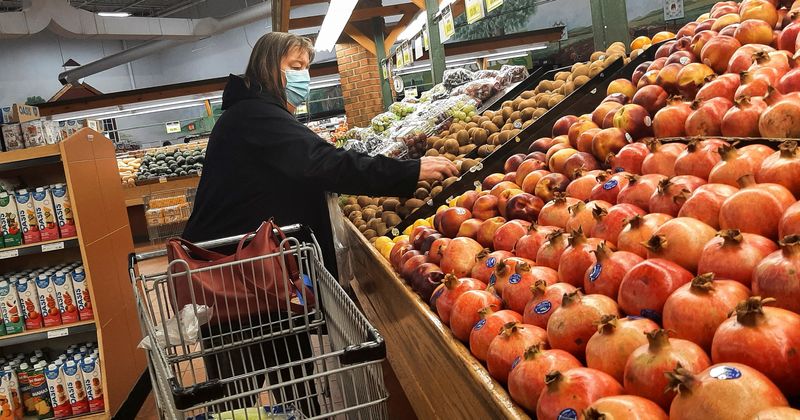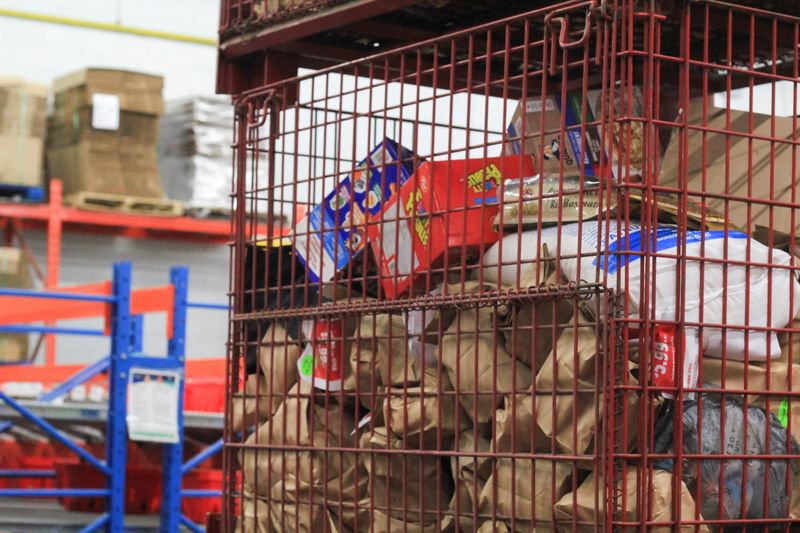By Promit Mukherjee and Ismail Shakil
OTTAWA (Reuters) -Canada's annual inflation rate rose more than expected to 2.0% in October as gas prices fell less than the previous month, data showed on Tuesday, causing markets to scale back bets on a big rate cut next month.
It was the first pick-up in the annual inflation rate since May but was largely in line with expectations of the Bank of Canada, which predicted last month that October's figure would rise back to 2%.
Analysts polled by Reuters had forecast the inflation rate would speed up to 1.9% from 1.6% in September. In August, the annual rate was 2%.
On a monthly basis, the consumer price index rose by 0.4% after two consecutive monthly declines, Statistics Canada data showed. The monthly gain also beat market expectations of a 0.3% increase.
"The prudent course of action would be a 25-basis-point cut and I think this report somewhat strengthens that view," said Doug Porter, chief economist at BMO Capital Markets.
Statistics Canada said a smaller 4% annual drop in gasoline prices compared with September's 10.7% decrease led to the acceleration in October. Excluding gasoline, the inflation rate remained at 2.2% for the third straight month.
Tuesday's data will be the last set of consumer price figures to be released ahead of the Bank of Canada's interest rate announcement on Dec. 11. Currency markets now see a 26% chance of a 50 basis point rate cut next month, down from 37% before the CPI data release.
The Canadian dollar firmed 0.19% after the data to 1.3989 to the U.S. dollar, or 71.48 U.S. cents. Yields on the government's two-year bonds fell 2.1 basis points to 3.206%.
Gross domestic product data next week and unemployment data early next month would also shape the bank's decision on the size of the reduction in rates, economists said.
"Underlying price pressures are still receding, and if the gross domestic product release on November 29 and the jobs number on December 6 both contradict today's report in coming in on the softer end of the spectrum, policymakers could move more aggressively," said Karl Schmotta, chief market strategist at Corpay.
The bank has lowered its policy rate by 125 basis points over its last four policy-setting meetings, including a 50 bp cut in October, when Governor Tiff Macklem said there would be further easing if the economy evolved in line with forecasts.
The bank's preferred measures of core inflation, CPI-median and CPI-trim, also edged up.
CPI-median - or the value at the middle of the set of price changes in a month - increased to 2.5% from 2.3% in September, while CPI-trim - which excludes the most extreme price changes - rose to 2.6% from 2.4%.

Price increases of store-bought food accelerated to 2.7% in October from 2.4% in September, the statistics agency said, noting that this was the third consecutive month in which grocery price rises have outpaced headline inflation.
Services price inflation decelerated to 3.6%, the slowest annual pace since January 2022, while goods prices rose by 0.1% after a 1% decline in September.
